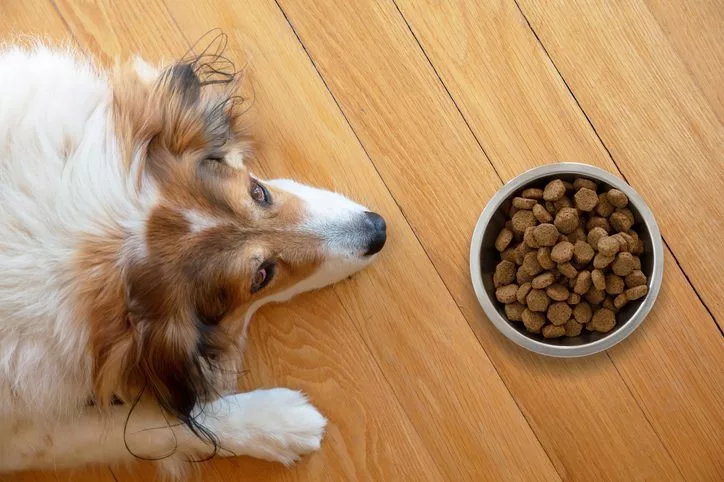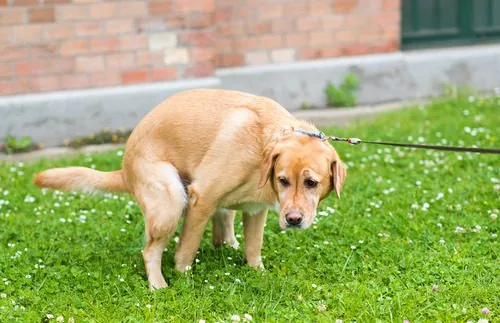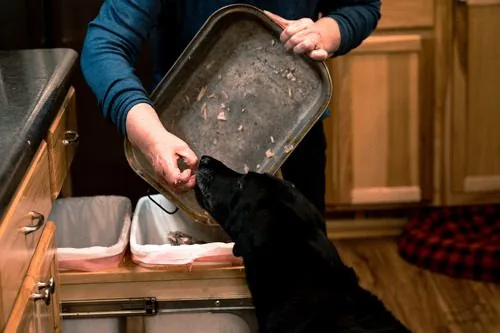Everyone knows that most dogs are very food motivated. This means that the moment that your dog stops eating, you might begin to worry about their health. A lack of appetite is usually a good sign that something is wrong with your dog and that you should start paying attention to their overall behavior.
If your dog has only missed one meal, then you might not need to worry about them much. However, if your dog has missed more than one meal or is skipping meals often, there could be something more serious going on. You will want to know more about why dogs might choose not to eat so that you can decide if you need to call the vet.

1. Dental Issues
Broken teeth, plaque, and tartar buildup can lead to mouth pain that makes dogs stop eating. If they are still drinking and seem active and healthy otherwise, you should consider their teeth a possible reason for their lack of appetite. You will need to call the veterinarian for this issue and have them clean your dog’s teeth. They might need to pull teeth as well if your dog has broken teeth.
Many dogs require an annual dental cleaning to maintain healthy teeth. If your pet has picked up something that should not be chewed on, they might need to see the vet more often to have broken teeth dealt with.
2. Anxiety
Dogs who are scared, worried, or suffering from a loss, like the loss of a companion, might stop eating. This can happen if you move to a new home or if you take them on a trip as well. Usually, these dogs will go back to eating after about twelve to twenty-four hours. If your dog is still not eating after a couple of days, you might need to see your vet. They can give your dog some anxiety meds to help them to feel better so that they can adjust to the changes they are dealing with in their life.
Anxiety can be a long-term problem for some animals, and if your dog is prone to worrying about things, then you might need to have a daily plan to help them to feel happy and safe.
3. Ingesting Toxins or a Foreign Body
Dogs who have eaten a substance that they should not have eaten or who have swallowed something indigestible might stop eating and then start vomiting. They could also cease drinking and act very uncomfortable. Both of these situations is an emergency and requires an immediate trip to the vet.
Your vet will be able to tell if your dog has ingested something that is not edible or if they have been poisoned. Your dog might need to stay at the animal hospital for treatment or surgery to save their life. Poisoning can be deadly within a half hour, so if you think that your dog has ingested something that is toxic, you need to be sure that you do not take this lightly. The difference between saving your dog’s life and not being able to help them can hang by a thread with poisoning cases.
4. Bloat
Large breeds can suffer from a condition called bloat, which is caused by gas, food, or fluid that causes the stomach and gut to twist painfully. This is a condition that cannot be resolved without surgery, and you will want to rush your pet to the vet if they look lumpy or misshapen in their midsection and have ceased to eat.
There are various levels of severity associated with bloat, and your vet might have to remove the intestines and secure the stomach to the interior body wall to prevent another bloat from happening in the future.
5. Cancer
Unfortunately, if your dog has some kind of cancer, the first sign might be that they have lost their appetite. Cancer can be present in dogs for quite a while before dogs show symptoms, so loss of appetite does not necessarily mean that you have caught the cancer in the earliest stages. Your vet will need to diagnose the cancer that your dog has, and then they can help you to treat your dog.
If your dog needs surgery, they might be referred to a specialist, and they could be a candidate for chemotherapy as well. Managing a dog with cancer can be scary at first, but there are many more options than there used to be for the treatment of cancer.
6. Overfeeding
If you are feeding your dog too much, they might act like they don’t feel good, and they could go off their food or vomit. Make sure that you are aware of how much your dog should be eating of the food that you have selected for them. If you are feeding too often or too large an amount of food, you might be making them feel too full to be hungry at mealtimes.
This can be more common in puppies than in adult dogs, and you might need your vet’s help to build a feeding plan for your dog. In addition, some dogs might have food allergies that make them feel poorly and suffer from a lack of appetite. Your vet can help with this issue as well and get your dog onto a feeding protocol that works for them.
Dogs That Are Not Eating Might be Sick
If you are dealing with a dog that has a consistent lack of appetite, you need to be sure that you don’t ignore this possible sign of a more serious condition. There are many reasons that your dog might have stopped eating, and you should make sure that you don’t ignore this sign of a possible health ailment. Making sure that your dog gets medical attention is important. Even if the vet does not find a serious condition is the reason for your pet’s lack of appetite, you can have the peace of mind that they are not seriously ill.
If your dog is not eating give Birch Lake Animal Hospital a call at (651) 426-2246 or book an appointment online!
Recent Posts
About Birch Lake Animal Hospital
The staff at Birch Lake Animal Hospital seeks to provide the best possible medical care for our highly-valued patients and clients.





